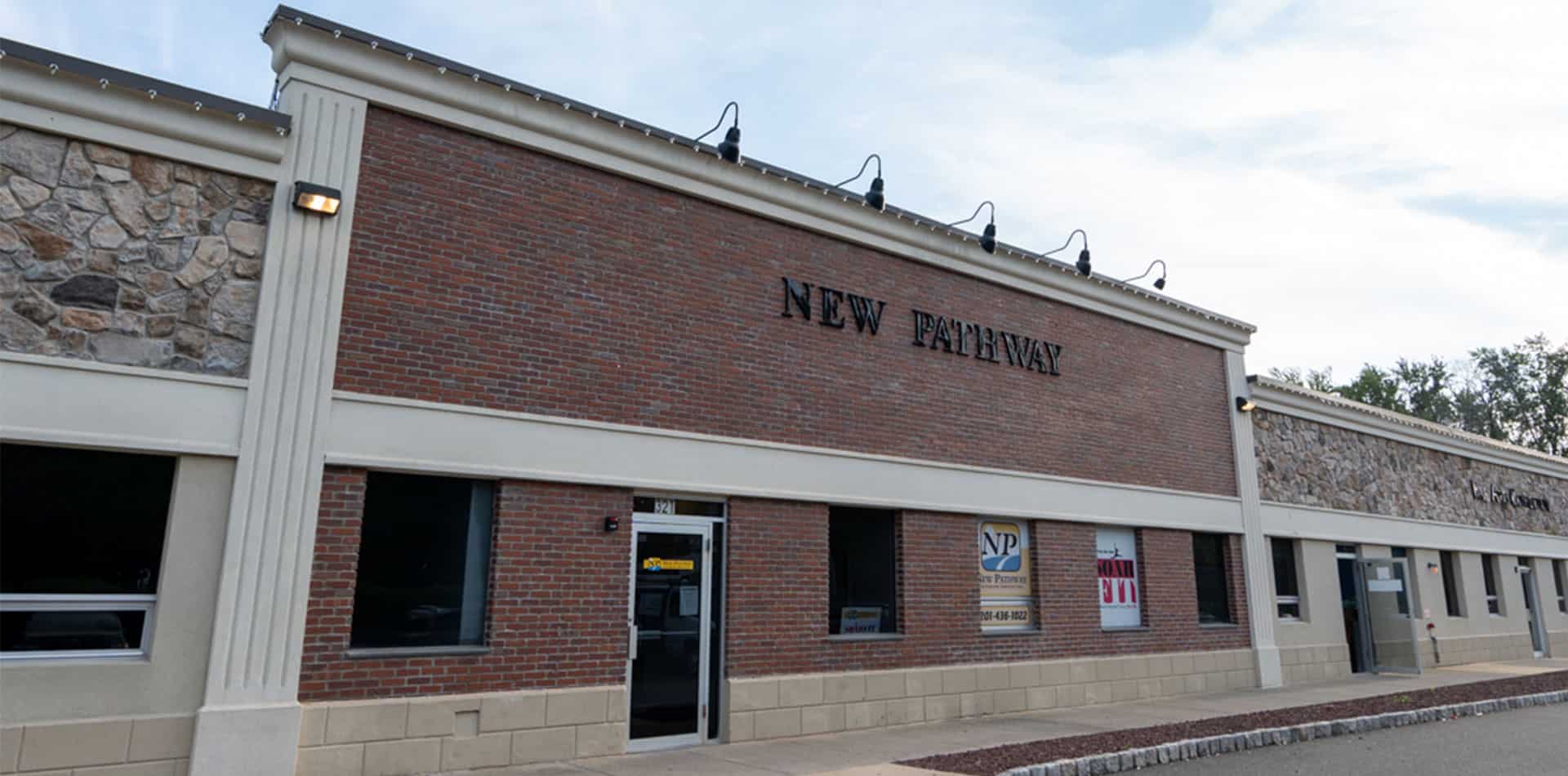Group Therapy in Adolescent Mental Health and Substance Use Treatment
What you will learn:
- How group therapy helps teens build positive connections for healthy development.
- Unique benefits of shared experiences in group therapy.
- Guardian Recovery’s evidence-based and holistic approach to group therapy and dual-diagnosis care.
We Specialize In Adolescent Treatment
"*" indicates required fields
By selecting this checkbox and entering mobile number I agree to receive GR Support from Guardian Recovery Network Holdings LLC. Message frequency varies. Text HELP to 96909 for help, Text STOP to 96909 to end. Msg&Data Rates May Apply. By opting in, I authorize Guardian Recovery Network Holdings LLC. to deliver SMS messages using an automatic dialing system and I understand that I am not required to opt in as a condition of purchasing any property, goods, or services. By leaving this box unchecked you will not be opted in for SMS messages at this time. Click to read Terms and Conditions & Privacy Policy.
At Guardian Recovery, we believe that connection is the opposite of addiction. Thus, group therapy plays an integral role in our adolescent treatment program.
As a cornerstone of our mental health and substance use treatment, our group therapy program is grounded in evidence-based practices, such as cognitive-behavioral therapy (CBT), dialectical behavior therapy (DBT), motivational interviewing (MI), and more. These modalities are designed to help teens identify and modify negative thought patterns, manage intense emotions, and process traumatic experiences.
Guardian Recovery’s group therapy program aids each teen in defining their own personal identity and building positive connections, all while gaining the tools needed for healthy adolescent development. Join us as we delve into the unique benefits and features of group therapy.
The Benefits of Group Therapy for Teen Substance Use & Mental Health Treatment
Group therapy is a form of psychotherapy (aka counseling and talk therapy) that involves one or more therapists working with a small group of teens. This therapeutic approach provides a supportive environment where individuals can share their experiences, learn from one another, and develop coping strategies together.
One of the key benefits of group therapy is the sense of community it fosters. Our teens often find comfort in knowing they are not alone in their struggles, which can significantly enhance their healing process. While group members offer valuable support, formal sessions provide benefits that go beyond informal self-help groups.
In group therapy, teens also gain insights into their own behaviors and feelings by observing and interacting with others. This dynamic allows adolescents to recognize their strengths and weaknesses, facilitating personal growth and socialization skills.
It’s important to note that families can participate in their own form of group therapy at Guardian Recovery. Along with providing ongoing communication regarding their teens, families can participate in family therapy, workshops, and their own parent support group.
Overall, group therapy can be an effective treatment option for various mental health and behavioral issues, promoting recovery and well-being through shared experiences and collective support. As such, group therapy is regularly used to treat a host of mental health and behavioral concerns including:
- Depression
- Anxiety
- Obsessive-compulsive disorders (OCD)
- Post-traumatic stress disorder (PTSD)
- Attention-deficit hyperactivity disorder (ADHD)
- Substance use
- Other mental health concerns
Get Local Help
Questions?
Learn More About the Recovery Process
- Our Approach
- The Treatment Process
- Frequently Asked Questions
- Insurance Check
- Ask a Question
Our Approach to Group Therapy
At Guardian Recovery, we provide holistic care that doesn’t just treat the symptoms of mental health disorders and substance use. Rather, we empower teens to identify and address the underlying issues that drive them.
During group therapy sessions, teens dive deep into a range of pertinent, recovery- and mental-health-related topics as they are both challenged and supported by their peers. Our compassionate staff, which is well-versed in teen-specific treatment, focus on age-specific issues and challenges that may be influencing your teen’s thoughts, feelings, and behaviors.
For example, some topics addressed during our group therapy sessions can include the impact of social media, peer pressure at school, family dynamics, and the transition to college/independent living. Additionally, our adolescent group therapy sessions focus on emotional regulation and the development of healthy coping skills.
Your Teen's Transformation Starts
Here
Guardian Recovery Adolescent can help your teen take control of their lives, putting them on a path to a brighter future filled with possibility.
The Link Between Behavioral and Mental Health
Research from the National Institute on Drug Abuse highlights a troubling trend: Adolescents struggling with substance use often experience high rates of co-occurring mental health issues.1
Additionally, studies show that teens dealing with a range of mental health challenges, whether severe or subtle, may turn to drugs and alcohol in search of relief. While these substances may offer a temporary escape, they often worsen the very problems the individual seeks to alleviate, both in the short term and over time.2
A significant factor contributing to co-occurring disorders in teens is the ongoing development of the adolescent brain. The brain’s executive functions—responsible for critical skills like decision-making and impulse control—are among the last to mature, making teens particularly vulnerable to substance use.2
As adolescent specialists, Guardian Recovery offers the gold standard of care for co-occurring conditions, namely our dual-diagnosis treatment. Our holistic approach addresses both mental health and substance use issues concurrently, a strategy that has been proven more effective than treating each issue individually.1
The Effectiveness of Group Therapy in Teen Recovery
Our extensive history with adolescents offers anecdotal evidence that group therapy is effective at treating behavioral and mental health issues in teens. However, research also supports our historical evidence.
A 2021 review highlights that group therapy, particularly cognitive behavioral therapy (CBT) and contingency management (CM), is effective in reducing substance use among adolescents. These group treatments have shown significant success in decreasing the use of substances like cocaine, methamphetamine, and opioids when compared to standard treatment approaches.3
Furthermore, a 2024 review in the Journal of Mental Health & Clinical Psychology notes that participation in group therapy can enhance recovery experiences by addressing underlying mental health issues, improving social behavior, and boosting self-esteem and mental health. This same review also showed that adolescents who engaged in CBT reported reduced symptoms of depression and anxiety, indicating the therapeutic benefits of group settings.4
Complimentary Insurance Check
Find Out Today!
"*" indicates required fields
Does your insurance cover mental health?

Our Locations
Our Facilities & Teams Transform Lives
Changing lives by providing comprehensive support and rehabilitation, empowering individuals to overcome addiction and regain control of their health and well-being.
What to Expect During Group Therapy Sessions
While every group therapy session is structured differently based on the topic that is being covered that day, our group sessions typically adhere to a similar framework. Here’s what you can typically expect.
- Structure—Group therapy sessions are usually led by one or more trained therapists who guide the discussion and activities.
- Sharing and Interaction—Therapists introduce a topic or focus for the session and then encourage teens to share their thoughts, feelings, and experiences related to the topic. This sharing helps foster a sense of community and understanding among members, as many may be dealing with similar issues. The interaction can lead to valuable insights and support from peers, which is a key benefit of group therapy.
- Therapeutic Techniques—Therapists often employ various techniques during sessions, such as role-playing, guided discussions, and mindfulness exercises. These activities are designed to help participants explore their emotions and behaviors in a safe environment.
- Emotional Reactions—It’s important to note that emotional reactions are common during group therapy. Teens may experience a range of feelings, from relief and connection to discomfort and vulnerability. This spectrum of emotions is a natural part of the therapeutic process.
- Confidentiality and Trust—Confidentiality is a critical aspect of group therapy. Participants are typically reminded of the importance of keeping shared information private, which helps build trust within the group.
- Acclimation for New Members—For those attending their first session, facilitators usually take time to acclimate new members to the group’s process and rules. This helps create a welcoming atmosphere and ensures everyone understands the expectations.
What Topics Are Covered During Group Therapy Sessions?
The topics covered during our group therapy sessions are designed to promote healthy, psychoeducational discussions between teens. Based on the makeup of each group and each teen’s individual needs, therapists select from a broad range of topics including:
- Addiction and mental health education
- How substance use impacts teens and their families
- Trauma-resolution techniques
- The lasting impact of childhood trauma
- Personal treatment goals
- Effective methods of relapse prevention
- Relapse triggers
- The importance of self-care
- The role of gratitude in substance use recovery
- The relationship between substance use and mental health
- Stress management techniques
- Development of coping strategies
- Setting goals for recovery and well-being
- Academic struggles and solutions
- Effective social media consumption
- Addressing stigmas
- Coping with loss and grief
- Mindfulness and relaxation techniques
- Life skills development
- Emotional regulation
- Self esteem and identity
Ready to Change Your Teen’s Future?
Your Next Steps
Therapeutic Services We Provide
At Guardian Recovery, our individual, group, and family therapy sessions employ the following modalities.
- Cognitive-Behavioral Therapy (CBT)—CBT is a structured psychotherapy that focuses on identifying and changing negative thought patterns and behaviors that contribute to emotional distress. By helping teens develop healthier thinking and coping strategies, our CBT aims to improve mental health outcomes and enhance overall well-being.
- Dialectical Behavioral Therapy (DBT)—DBT is a form of CBT specifically designed to help teens with intense emotional-regulation issues. It combines individual therapy with group skills training, focusing on mindfulness, distress tolerance, emotional regulation, and interpersonal effectiveness to promote healthier coping mechanisms and improve relationships.
- Motivational Interviewing (MI)—Our therapists employ MI to help clients address their ambivalence to change. As a result, teens can better access the internal motivation necessary to make lifestyle and behavioral changes.
- Relapse Prevention—Therapists help teens identify triggers and warning signs that may lead to relapse. They also arm them with tools and techniques to sidestep these issues in the future.
- Life Skills Training—Designed to teach individuals essential skills for everyday living, our life skills training works to improve teen decision-making, problem-solving, communication, and emotional regulation. By enhancing these skills, participants are better equipped to manage stress, build healthy relationships, and navigate challenges, ultimately promoting overall well-being and resilience.
- Trauma-Based Therapy—Our trauma-based therapy focuses on addressing the psychological impact of past traumatic experiences, helping teens process and heal from their trauma. This type of therapy often incorporates various techniques, such as cognitive restructuring, exposure therapy, and mindfulness, to empower adolescents and facilitate their journey toward recovery and emotional resilience.
Our Simple Admissions Process
The journey to recovery and well-being begins with our straightforward admissions process, which starts with a simple phone call. Our trained admissions specialists will listen to your concerns and answer any questions you have. We take the time to understand your teen’s unique needs and circumstances, ensuring that we can tailor our approach to best support their path to healing.
Once you reach out, we will guide you through the necessary steps, which typically include an initial assessment and a discussion about available treatment options. Both of these steps can happen during your first free, confidential, and no-obligation call.
Our goal is to create a welcoming environment where both parents and teens feel empowered to take the next steps toward recovery. If you’re ready to explore how Guardian Recovery can help your family, reach out to us today.
Transformation is possible. Guardian Recovery can help.
FAQs
We work with a variety of insurance providers to ensure that treatment is accessible. Please contact us for specific details about coverage and payment options.
Adolescent group therapy sessions foster community between peers and offer a safe space for sharing. Thus, only teens in our care participate in these peer group sessions. However, parents and guardians are encouraged to take part in our family therapy sessions, educational workshops, and parent peer support groups—all of which can facilitate effective communication, conflict resolution, and the ability to set and maintain boundaries with their adolescent.
The frequency of group therapy sessions depends on the severity of the individual’s substance use or mental health condition, as well as the individual’s treatment plan.
Group therapy sessions are conducted by licensed counselors with direct experience with adolescents.
All services provided by Guardian Recovery are HIPPA compliant, and confidentiality must be maintained for legal and ethical purposes. The rules of confidentiality are discussed in detail with each client at the beginning of group therapy sessions.
Individual therapy involves one-on-one sessions between a therapist and a teen, allowing for personalized attention and tailored interventions. In contrast, group therapy involves multiple participants who share their experiences and support each other under the guidance of a therapist.
If your teen feels uncomfortable during a session, they should communicate this to their therapist. Our therapists create a safe space for open dialogue and work with your teen to address any concerns or discomfort they may have. It’s important for teens to feel comfortable expressing their feelings in therapy.
Therapy progress can be assessed through regular check-ins with the therapist, who will provide updates on your teen’s development and any changes in behavior or emotional well-being. Additionally, you may notice improvements in your teen’s mood, coping skills, and relationships as they engage in therapy.
Mental health disorders and substance use often occur concurrently, and they both can influence the other. At Guardian Recovery, we offer dual-diagnosis treatment for those experiencing both substance use and mental health concerns. Our therapy programs take all of these factors into account, providing for whole-person and whole-family healing.
Yes, the therapists at Guardian Recovery are highly qualified professionals with specialized training in adolescent mental health and substance use treatment. They understand the unique challenges faced by teens and are equipped with the skills necessary to provide effective therapy.
Sources
- National Institute on Drug Abuse. (2018). Common Comorbidities with Substance Use Disorders Research Report. Part 1: The Connection Between Substance Use Disorders and Mental Illness.
- National Institute on Drug Abuse. (2018). Common Comorbidities with Substance Use Disorders Research Report. Why is there comorbidity between substance use disorders and mental illness?
- López G, Orchowski LM, Reddy MK, Nargiso J, Johnson JE. A review of research-supported group treatments for drug use disorders. Subst Abuse Treat Prev Policy. 2021;16(1):51. Published 2021 Jun 21. doi:10.1186/s13011-021-00371-0.
- Ezerioha A, Mohammadnezhad M. Adolescents’ Participation in Drug Addiction Interventions, Individual Perceptions, and Attitudes towards Recovery: A Scoping Review. J Ment Health Clin Psychol (2024) 8(2): 42-50
Reviewed professionally for accuracy by:

Ryan Soave
L.M.H.C.
Ryan Soave brings deep experience as a Licensed Mental Health Counselor, certified trauma therapist, program developer, and research consultant for Huberman Lab at Stanford University Department of Neurobiology. Post-graduation from Wake Forest University, Ryan quickly discovered his acumen for the business world. After almost a decade of successful entrepreneurship and world traveling, he encountered a wave of personal and spiritual challenges; he felt a calling for something more. Ryan returned to school and completed his Master’s Degree in Mental Health Counseling. When he started working with those suffering from addiction and PTSD, he found his passion. He has never looked back.




